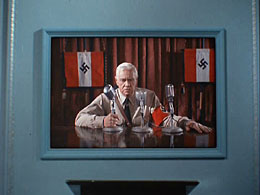I Have Taken Part in these Activities
Some people are trying to drum up a bit of controversy over the fact that a Bob Dylan former bootleg (Gaslight tapes) is being distributed through Starbucks coffee shops. I say "some" people, because you will detect from the 30+ comments on the story that the overwhelming response is a shrug of the shoulders, or outright support for BD.
Bob Dylan, who likes to keep his own counsel, has been married several times and has a number of children. He's in his 60s, and I'm pretty sure he's been a smoker of tobacco among other things. Presumably he knows the state of his own health. He's certainly aware that his once beautiful singing voice isn't what it was, and that he'll perhaps never sell records in the quantities that, say, Blood on the Tracks or Slow Train Coming (which was very popular with religionists as well as regular Dylan fans) sold.
So perhaps he's looking at his legacy and thinking, why not? Take the Starbucks dorrars, and Victoria's Secret, and anything else that's going on. Who knows? Perhaps he's sick of bootleggers making money from his old stuff and exploiting his fans with expensive and poor reproductions. Perhaps he looks at the self-righteous Starbucks haters and thinks, hmm, how can I distance myself from these losers? As one of the commenters on the story points out, retailers charge a lot of money to record companies for rack space. You walk into the shop and the latest products are being pushed at you in special racks - all bought and paid for.
(It can be somewhat shattering to the illusions of the young to learn this kind of thing. Denial will ensue. The products Amazon promotes on its front page? Paid for. The product in the IT catalogue or dealer advertisement in the magazine you're looking at? Paid for. I know of one IT company not a million miles from here that even, sometimes, makes a profit from its marketing.)
So maybe Sony are getting a better deal from Starbucks than from other major retailers in the USA.
Most importantly, and what "some" people don't seem to have paid attention to, Bob Dylan adopted "protest singer" as a persona early in his career, because that was the way to get the gig. As soon as he didn't need to be a protest singer, in 1964, he stopped being one. He never joined in with the hippy culture, he never hung out with the freaks, he was never part of that scene. So to the people who are calling him a "sell out", I ask, have you been paying attention? Have you been listening carefully? Because Bob ain't Sting, and he ain't your dad.
Do you hate Starbucks? Do you shop in Tesco? Do you hate Esso? Do you buy your petrol in, er, Tesco? Do you hate HP, but love Apple? Do you grow your own food and walk barefoot in the dogshit world? Do you smoke? Are you a midnight toker? Was anybody exploited, you think, during the production of that coke you snort up your nose, or the weed you mix with your tobacco, or the tobacco you mix with your weed? Do you wear cotton? Silk? Do you walk around naked and live on fresh air?
People pick on companies like Nestlé and Starbucks, but all it makes me think is that you only know about Nestlé. You just don't know what the others are doing. Who owns Green and Blacks now? Ah, Cadbury, ah Bisto. And anyway, who invented the Caramac Kit Kat? Oh, yeah, it was me.
We can only live in the world. There's nowhere else to go, and the cracks in the pavement will get you in the end.








